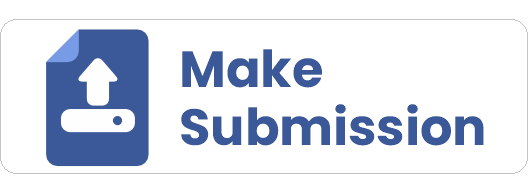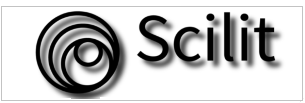Pelatihan Daur Ulang Kantong Plastik dalam Mendukung Zero Waste School Pada Siswa MA Darul Muhsinin Desa Embung Kandong
DOI:
https://doi.org/10.29408/jt.v2i2.28391Keywords:
Recycling, Plastic, Zero WasteAbstract
According to Law Number 18 of 2008 article 1 concerning waste, it is stated that waste is the residue of daily human activities and / or natural processes in the form of solid or semi-solid in the form of organic or inorganic substances that can be decomposed or cannot be decomposed which are considered no longer useful and disposed of in the environment. Based on its type, waste can be divided into organic and inorganic waste. Plastic waste is one of the inorganic waste that is very difficult to decompose in the environment and is very dangerous for the life of living things on this earth, including humans. Some global studies such as Jambeck et al (2015) state that plastic waste generation in Indonesia amounted to 3.2 million tons in 2010, about 1.29 million tons into marine waters. Even in another study stated that plastic waste generation of 5.4 million tons per year is equivalent to 14% of total waste while recycling plastic waste is only about 5% of total waste. In order to provide knowledge and experience to the younger generation, especially students, the Environmental Engineering Study Program of Hamzanwadi University organizes plastic waste recycling training in support of the zero waste school movement as a concrete action to help manage inorganic waste into new items that have benefits again. In addition, it also helps break the supply chain of plastic waste going to the landfill or being dumped around the school and residential environment.
Keyword: Recycling, Plastic, Zero Waste
References
BBC. 2020. Sampah Plastik Sebanyak 1,3 Miliar Ton diperkirakan Bakal Mencemari Daratan dan Lautan Dunia pada 2040 Mendatang. 'Mengerikan', sampah plastik sebanyak 1,3 miliar ton akan mencemari lingkungan pada 2040 - BBC News Indonesia
BRUIN 2023, Sampah Plastik Persoalan Utama di Indonesia. 2024. Sensus BRUIN 2023, Sampah Plastik Persoalan Utama di Indonesia - Mongabay.co.id
Darmawan, M.I., Septarini, S., Putra, A.M., Widiyanti, B. L., Susanti, D. R., dan Haerudin. 2024. Penerapan Trash Trap pada Kegiatan Clean Up di Daerah Sungai Paoq Pampang Desa Labuhan Haji Kabupaten Lombok Timur. Jurnal Teknokrat. Volume 2 (1), 45-51
Febriani, Y., Azim, M., Rafsanjani, A., Ramadhan, L., dan Fatmayanti, B.R. 2024. Edukasi dan Pendampingan Pengelolaan Sampah Anorganik Berprinsip Zero Waste System di Desa Bagik Payung Selatan Kecamatan Suralaga. Jurnal Teknokrat. Volume 2 (1), 36-44
Firmansyah, Y. W., Fuadi, M.F., Ramadhansyah, M.F., Sugiester, F., Widyantoro, W,, Lewinsca, M.Y., Diyana, S., Marliana, N.I.V., Arumdani, I.S., Pratama, A.Y., Azhari, D., Sukaningtyas, R., Hardiyanto, A. 2021. Keberadaan Plastik di Lingkungan, Bahaya Terhadap Kesehatan Manuisia dan Upaya Mitigasi: Studi Literatur. Jurnal Serambi Engineering. Volumen VI (4) Hal: 2279-2285
Ismail, Y. 2019. Pengelolaan Sampah Berbais Masyarakat. Academic in Action Journal. Vol 1(1) hal:50-61
Maslamah, A., Agustina, N., & Nurozi, A. 2021. Pelatihan Literasi Lingkungn Dan Pengolahan sampah Plastik Untuk Kerajinan Di SDN Krawitan Yogyakarta. Jurnal At-Thullab. Volume 2(1), 372-382.
Mutiara, S., Laila, S.N., & Azima, M.F. 2021. Pelatihan Pembuatan Kerajinan Tangan Dari Barang Bekas Pada Ibu-Ibu Pengajian Desa Danau Kabupaten Pringsewu. Kumawula Jurnal Pengabdian Kepada Masyarakat. Volume 4 (2), 308-311. https://doi.org/10.224198/kumawula.v4i2.33898
Sulistiyani, R. 2022. Pelatihan Daur Ulang Sampah Botol Plastik ebagai Media Pembelajaran Pengelolaan Sampah dan Kreativitas. Jurnal Pengabdian Masyarakat PIMAS. Volume 1 (1) Hal :10-21
Tiandho, Y., Aldila, H., Widyaningrum, Y., Kusmita, T., Indriawati, A., Kurniawan, W.B., & Afriani, F. 2021. Pelatihan Pemanfaatan Limbah Plastik Menjaddi Berbagai Kreasi Daur Ulang Bagi Masyarakat Desa Penyak. Journal of Appropriate Tehnology For Community Services. Volume 2 (2), 60-69
Undang-undang No. 18 Tahun 2008 tentang Pengelolaan Sampah. Lembaran Negara Republik Indonesia Nomor 4851
Word Bank. 2021. Pembuangan Limbah Plastik dari Sungai dan Garis Pantai di Indonesia. Didapatkan dari Plastic Waste Discharges from Rivers and Coastlines in Indonesia (worldbank.org)
Yuriko, S.Q., Carissa, F., Saputra, D.E., Fauzan, M., Maulana, S., dan Zaliman, I. 2024. Sosialisasi Bahaya Penggunaan Media Sosial pada Siswa SMPN 09 Pangkalpinang. Jurnal Teknokrat. Volume 2 (1), 20-26
Downloads
Published
How to Cite
Issue
Section
License
Copyright (c) 2024 Agus Muliadi Putra, Baiq Liana Widiyanti Widiyanti, Husnayati Hartini Hartini

This work is licensed under a Creative Commons Attribution 4.0 International License.
Copyright & License
Copyright
Authors published in this journal agree to the following terms:
- The copyright of each article is retained by the author (s) without restrictions
- The journal allows the author(s) to retain publishing rights without restrictions
- The author grants the journal the first publication rights with the work simultaneously licensed under the Creative Commons Attribution License, allowing others to share the work with an acknowledgment of authorship and the initial publication in this journal.
- Authors may enter into separate additional contractual agreements for the non-exclusive distribution of published journal versions of the work (for example, posting them to institutional repositories or publishing them in a book), with acknowledgment of their initial publication in this journal
- Authors are permitted and encouraged to post their work online (For example in the Institutional Repository or on their website) before and during the submission process, as this can lead to productive exchanges, as well as earlier and larger citations of published work
- Articles and all related material published are distributed under a Creative Commons Attribution- 4.0 International Public License (CC - BY 4.0).
License
Teknokrat: Teknologi Informasi untuk Masyarakat is licensed under a Creative Commons Attribution- 4.0 International Public License (CC - BY 4.0).
![]()
You are free to :
Share — copy and redistribute the material in any medium or format
Adapt — remix, transform, and build upon the material for any purpose, even commercially
Under the following terms :
Attribution — You must give appropriate credit, provide a link to the license, and indicate if changes were made. You may do so in any reasonable manner, but not in any way that suggests the licensor endorses you or your use.
No additional restrictions — You may not apply legal terms or technological measures that legally restrict others from doing anything the license permits.














